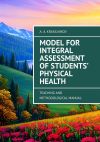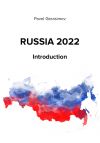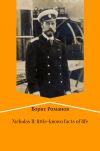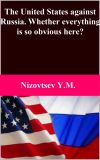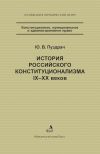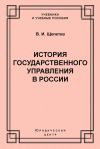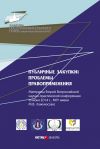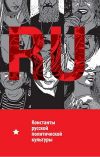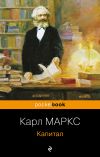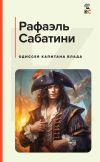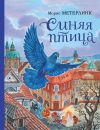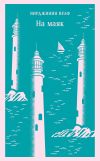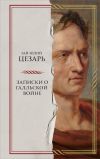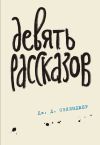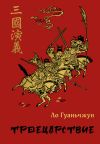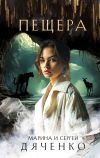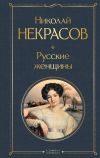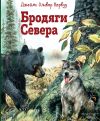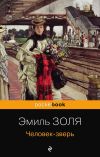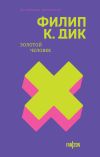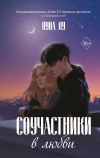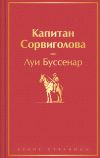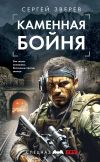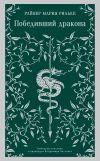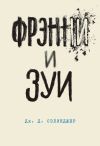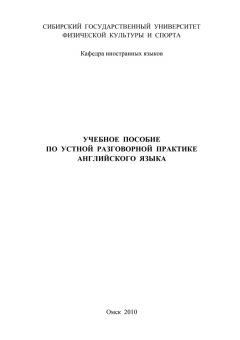
Автор книги: Коллектив Авторов
Жанр: Педагогика, Наука и Образование
сообщить о неприемлемом содержимом
Текущая страница: 1 (всего у книги 8 страниц) [доступный отрывок для чтения: 2 страниц]
Учебное пособие по устной разговорной практике английского языка
Topic 1. MY VISIT CARD
I. Write down and translate the following vocabulary notes and sentences. Learn the vocabulary notes by heart.
1) name, second name, surname, full name
Ex.: His name is Aleksandr. His second name is Aleksandrovich. His surname is Aleksandrov. So, his full name is Aleksandr Aleksandrovich Aleksandrov.
2) to be 18 (19, 20) years old; to be 18, 19, 20
Ex.: My sister is 19 years old. I am 18. My mother is 45 years old.
3) to be born in
Ex.: Sam is an Englishman but he was born in Russia. I was born in London. They were born in France. Where were you born?
4) good-looking
Ex.: Mark’s girlfriend is a very good-looking young person. Goodlooking persons are usually successful.
5) slim
Ex.: My sister always keeps to diets and goes to sport clubs, that is why she is very slim.
6) to train
Ex.: Sportsmen must train regularly. You should train hard to have good physical fitness.
7) to keep one’s health
Ex.: Proper meals and sport keep our health.
8) experienced
Ex.: My aunt has worked at school during 25 years, so she is very experienced in pedagogy.
9) to be two/four years older/younger than
Ex.: Ann is four years older than my brother. Sam is two years younger than Mark.
10) to be the first/second/third/fourth/fifth year student
Ex.: This young man is the second year student of the Siberian State University of Physical Culture and Sport. She is the third year student of the Medical Academy.
11) to have much in common
Ex.: My sister and me have much in common.
12) to decide
Ex.: She decided not to come to his birthday. When will you decide what to do?
13) to enter
Ex.: Frank entered the Classical University last year. I am going to enter the Siberian State University of Physical Culture and Sport this year.
14) to graduate from
Ex.: She graduated from the Technical University last year. Next year my best friend will graduate from the Medical Academy.
15) merited
Ex.: John’s brother is a merited artist of Russia. I would like to become a merited master of sports.
16) to go in for sport/to do sport(s)/to take up sport
Ex.: Many people nowadays go in for sport. It is popular to do sport. What kind of sport do you take up? I take up gymnastics.
17) application
Ex.: People usually write an application when they want to leave their work.
18) entrance examinations
Ex.: My entrance examinations were difficult enough.
19) to admit
Ex.: He says he admits my work. I don’t admit call.
20) coach (trainer)
Ex.: A coach plays a very important role in a sportsman’s career.
21) competition
Ex.: Shooting competition will take place in the middle of July.
22) to take part in
Ex.: Mike often takes part in different conferences.
23) higher education
Ex.: You need a higher education for finding good and well-paid work today.
II. Fill in the gaps choosing the words from the following list:
1) entered, 2) have much in common, 3) boast, 4) admitted, 5) couch, 6) name, 7) boast, 8) higher education, 9) graduated from, 10) decided, 11) good-looking, 12) entrance exams, 13) experienced, 14) was born, 15) trains, 16) application, 17) competition, 18) slim.
1. He says that his … is Mark. 2. Everybody likes her, she is a very kind and … person. 3. Sam … the University with honour. 4. Although they are brothers, they don’t … 5. Kate … the Service Institute last year. 6. I need an … person for such a kind of work. 7. … means to be healthy and strong. 8. Some small children like to … 9. My elder brother is a sportsman, so he … every day. 10. They say that there are almost no … people in America nowadays. 11. I wrote an … before entering the University. 12. Most of the sportsmen can’t train without a … 13. At present time … is very prestigious. 14. Swimming … will take place in the middle of July. 15. Jane says that her … were rather difficult. 16. I … not to discuss this question again. 17. George … in New York. 18. The jury … the last effort of the athlete.
III. Read and translate the text.
My visit card
My name is Ivan. My second name is Ivanovich. My surname is Ivanov. So, my full name is Ivan Ivanovich Ivanov. I am 17 years old. I was born in 1991, in the Russian city of Omsk. My family is rather small. I have a mother, a father and a sister. My mother is a teacher of biology. She works at a college. She likes her profession very much. She is a good-looking, slim woman with brown hair and green eyes. When my mother has free time she goes to sport club to train herself. She says that sport keeps our health.
My father is a computer programmer. He is very talented and experienced in this field. He is a broad-shouldered tall man with dark hair and blue eyes. His hobby is playing guitar. My sister is two years older than me. She is a third-year student of the Medical Academy. She dreams to become a children’s doctor. She is very interested in learning foreign languages. At present time she is learning French and Italian. She says they have much in common.
I started school at the age of 6 and I finished it at the age of 17. After finishing school I decided to enter the Siberian State University of Physical Culture and Sport. My choice is not sudden: I have always wanted to study here. My uncle is a merited master of sports. He graduated from this university with honour. His specialization is swimming.
I began to go in for sport early. During all my childhood I attended swimming pool where I trained hard. Besides, my uncle taught me to train properly. Now, I don’t mean to boast, I am a very good swimmer. I am a candidate to the master of sports. Before entering the Siberian State University of Physical Culture and Sport I wrote an application. Then I had to pass my entrance examinations and then I was admitted! Now I am a first year student and my specialization is swimming. After graduating from the university I would like to become a very good coach. I am planning to do sport all my future life and I wish my children to take it up. I have already taken part in a lot of swimming competitions where I took the first, second and third places. Now my aim is to get higher education and to become a good specialist in my field.
IV. Answer the following questions.
1. What is the name of the speaker?
2. How old is he?
3. When and where was he born?
4. Is his family small?
5. Who lives with Ivan?
6. What is his mother’s profession? Does she like it?
7. Can you describe the appearance of Ivan’s mother?
8. What does his mother do when she has free time?
9. What does she think about sport?
10. What is Ivan’s father profession?
11. Can you describe the appearance of Ivan’s father?
12. What is his hobby?
13. Is Ivan’s sister younger than he?
14. Is she a student? Where does she study?
15. Who would she like to be?
16. What is she interested in?
17. What languages does she study?
18. What did Ivan decide to do after school?
19. What is Ivan’s uncle?
20. What did Ivan do during his childhood?
21. Is Ivan’s uncle a good coach for him?
22. What did Ivan do before entering the University?
23. What is his specialization?
24. Who would he like to be?
25. What is Ivan’s aim?
V. Now answer these questions to be ready to speak about your visit card.
1. What is your name?
2. How old are you?
3. When and where were you born?
4. Where do you live?
5. Do you have a family? (Enumerate the members of your family).
6. What do you do?
7. Do you have a hobby?
8. Do you have a lot of friends?
9. What do you like to do when you have free time?
10. Do you have a dream? What is it?
VI. Add some more information to the answers to the questions above. Be ready to speak about your visit card.
Topic 2. MY WORKING DAY
I. Look through the list of vocabulary notes and try to match them with the words and phrases given in Russian.
1) working day, 2) alarm-clock, 3) wake up, 4) early bird, 5) night owl, 6) get up, 7) stay in bed, 8) make one’s bed, 9) switch on, 10) do one’s morning exercises (do one’s daily dozen), 11) feel better, 12) take a shower, 13) clean one’s teeth, 14) comb one’s hair, 15) have breakfast, 16) get dressed, 17) leave, 18) live far from, 19) break, 20) lunch-time, 21) canteen, 22) get tired, 23) have a rest, 24) combine, 25) spend one’s free time, 26) well-bred, 27) support, 28) value, 29) go to bed, 30) fall asleep.
1) просыпаться, 2) принимать душ, 3) выходить/покидать, 4) обеденный перерыв, 5) ложиться спать, 6) рабочий день, 7) сова, 8) одеваться, 9) вставать, 10) завтракать, 11) столовая, 12) совмещать, 13) засыпать, 14) проводить свободное время, 15) будильник, 16) лежать в кровати, 17) выполнять утреннюю зарядку, 18) жаворонок, 19) чистить зубы, 20) заправлять постель, 21) чувствовать себя лучше, 22) воспитанный, 23) включать, 24) ценить, 25) уставать, 26) поддерживать, 27) перемена, 28) отдыхать, 29) жить далеко от, 30) расчесываться.
II. Fill in the gaps with the necessary vocabulary notes:
1) support, 2) an early bird, 3) get up, 4) leave, 5) comb her hair, 6) gets tired, 7) value, 8) alarm-clock, 9) make her bed, 10) don’t have breakfast, 11) combine, 12) live far from, 13) canteen, 14) feel better, 15) lunch-time, 16) well-bred.
1. I am … so I easily … in the mornings. 2. As I … my university I get there by bus or taxi. 3. Jason … after his trainings. 4. We … home at about 8 o’clock in the morning. 5. Mary is too small to … herself. 6. Some people … in the morning at all. 7. I can get up without my … 8. After taking a cold shower I … 9. It is very difficult for Lora to …: it is too long. 10. I … my friendship with my best friend. 11. This man is very tactful and … Everybody respects him. 12. The food in our … is not very expensive and quite good. 13. A true friend will always … you when you have some trouble. 14. It is rather difficult to … both work and study. 15. My … usually lasts for 30 minutes.
III. Read and translate the following text.
My working day
On Monday, Tuesday, Wednesday, Thursday and Friday my alarmclock wakes me up early in the morning (at 7 o’clock) and my working day begins. I am not an early bird, I would rather say that I am a night owl that is why it is very difficult for me to get up. So I stay in bed for 10 or 15 minutes more, get up, make my bed, switch on the radio and do my morning exercises. I feel much better after my daily dozen. Then I go to the bathroom, take a cold shower, clean my teeth, comb my hair and go to the kitchen to have my breakfast. Usually I make breakfast myself. I don’t eat much in the morning. For breakfast I usually have a cup of strong coffee and a sandwich. Then I get dressed and leave my house.
I study in the Siberian State University of Physical Culture and Sport. I am a first year student and my specialization is gymnastics. As I live far from my university I usually get there by bus or taxi (if I am very late). It takes me about 30 or 40 minutes. Our lessons begin at 9 o’clock. During our lessons we sometimes have a short 5-minutes break. Frankly speaking, it helps us to relax. At about 12 o’clock we have lunch-time. There is a big nice canteen in our university where most of our students and teachers have lunch. After lunch our lessons go on again. Sometimes we have 4 or 5 lessons a day. We usually have lectures, seminars and physical training lessons, of course.
After my study I usually get very tired. I come home at about 6 or 7 o’clock in the evening and have supper. Then I have a short rest and do my homework. As I go in for gymnastics professionally, I train 5 times a week: on Monday, Tuesday, Wednesday, Thursday and Saturday. Sometimes it is very difficult for me to combine my study with my trainings, but I have to: sport is my life.
I usually have free time on Saturday evening and Sunday. I have a lot of friends and I try to spend my free time with them. My friends are well-bred and friendly, ready to help and support in a difficult situation so I value them all.
I usually go to bed at 11 o’clock in the evening. I fall asleep very fast and so my working day is over.
IV. Answer the following questions.
1. What time do you usually wake up?
2. Do you wake up yourself or with the help of your alarm-clock?
3. Do you do your daily dozen in the morning?
4. Speak about other things you do in the morning (First I … then I … and…).
5. Do you always have breakfast in the morning?
6. Do you prepare your breakfast yourself?
7. Do you live far from your university?
8. How do you usually get to your university?
9. How many lessons a day do you usually have?
10. Do you go in for some sport? How many times a week do you train? Do you have a coach or do you train yourself? Do you get tired after your trainings? Is it difficult for you to combine trainings and study?
11. What do you do when you have free time?
12. What time do you go to bed?
V. Are you an early bird or a night owl? Do the questionnaire to find it out!
1. When I get up in the morning …
A. I am always happy and I have a lot of energy.
B. I am sometimes happy and sometimes I am not.
C. I am never happy and I don’t have energy.
2. At the weekend …
A. I always wake up before 9 a.m.
B. I sometimes wake up before 9 a.m. and sometimes sleep till noon.
C. I hardly ever wake up before 9 a.m.
3. When there’s a good film on TV late at night…
A. I often watch the beginning but I never see the end.
B. I may record it and go to bed or may watch it.
C. I always watch it to the end.
4. When I go to the party …
A. I never stay to the end.
B. I sometimes stay to the end and sometimes I don’t.
C. I always stay to the end.
5. When I see friends at the weekend …
A. I hardly ever see them before 9 p.m.
B. I sometimes have coffee with them in the morning.
C. I usually see them in the afternoon.
6. When a friend phones me before 8 a.m. …
A. I am always happy to talk to him/her.
B. I am sometimes happy to talk to him/her.
C. I never answer the phone at such time.
If you have the majority of «A» answers it means that you are a typical early bird. The majority of «B» answers shows that you are neither an early bird, nor a night owl. Your regimen is not stable and you should change it to avoid problems with your health. And the majority of «C» answers means that you are a night owl.
Do you agree with the conclusion? Do you think it is possible to become a night owl if you are an early bird and vice versa? Do you want to change your regimen?
VI. Read the following situations then choose one of them and role-play it.
1. You are a night owl. Yesterday you went to bed at 2 o’clock. And today, in the early Sunday morning your friend is phoning you to invite you for a run. Refuse your friend but be tactful with him/her.
2. You are an early bird. You are at a birthday party of your best friend. He/she wants you to stay for the whole night but you know that if you stay you will feel bad tomorrow. Refuse your friend but don’t hurt him/her.
VII. Compose an essay on the topic «My working day» and be ready to retell it.
Topic 3. MY FAVOURITE SPORTSMAN
I. Look through the list of vocabulary notes and try to match them with the words and phrases given in Russian.
1) sportswoman, 2) gymnast, 3) sport career, 4) under supervision, 5) sport-lover, 6) training, 7) gymnastics, 8) championship, 9) to make a deep impression, 10) to take up sport/to go in for sport, 11) support, 12) lifestyle, 13) calisthenics, 14) flexible, 15) train hard, 16) merited, 17) coach, 18) to gain a victory/to win, 19) combined team, 20) tournament, 21) multi-discipline event, 22) hoop, 23) skipping-rope, 24) mace, 25) fan, 26) perform, 27) regimen, 28) disqualify, 29) competition, 30) to take part in/to participate in, 31) under the strictest control, 32) performance, 33) elegance, 34) grace.
1) турнир, 2) грациозность, 3) тренер, 4) любитель спорта, 5) выступление, 6) режим, 7) гимнаст, 8) тренировка, 9) дисквалифицировать, 10) гимнастика, 11) изящество, 12) под руководством, 13) принимать участие в … 14) спортсменка, 15) художественная гимнастика, 16) чемпионат, 17) сборная команда, 18) гибкий, 19) выступать, 20) скакалка, 21) под строжайшим контролем, 22) спортивная карьера, 23) фанат, 24) заниматься спортом, 25) поддержать, 26) обруч, 27) заслуженный, 28) произвести сильное впечатление, 29) образ жизни, 30) многоборье, 31) булава, 32) завоевать победу/выиграть, 33) усиленно тренироваться, 34) соревнование.
II. Read the title of the text, try to guess and say what it is about. Read and translate the text.
Irina Chaschina
There are many outstanding sportsmen all over the world. I have got a favourite sportswoman: it is Irina Chaschina, the famous Russian gymnast. Irina Chacshina was born on the 24th of April in 1982 in the Russian city of Omsk. She began her sport career at the age of 6 under supervision of Arais Elena Nikolaevna in Omsk. Her grandfather, a great sport-lover, first brought her to training. Only a day before Irina watched gymnastics world championship which made a deep impression on her. She realized at once that she wants to take this kind of sport up. Her grandfather supported this decision, besides, sport was a very good idea for a plump young girl. Irina’s mother, a teacher of musical school, wanted her daughter to devote herself to music. Moreover, the parents wished Irina to learn to swim. So, that was her crazy lifestyle: music – swimming pool – gymnasium.
In the 7th form she had to choose and it was gymnastics that Irina began to go in for. It is rather interesting, that in the beginning Irina was offered to do sport gymnastics but the girl rejected this idea and declared that she would gladly take up calisthenics. That time Irina was far from being slim and flexible. In other words, she was not in a sports form but she trained hard and gradually got success.
Four years later the famous merited coach of Russia – Vera Efremovna Shtelbaums began to train Irina. The girl gained her first victory at the championship in Omsk, when she was 8 years old. At 12 she joined the combined team of Russia and began to train in Moscow from time to time. Being a junior Irina took the first place at a very prestigious tournament – the Unity of Independent States Spartakiada and won twice the championship among girls. Then she won bronze at the championship of Russia and took the third place at the championship of Europe. Since august 1999 Irina trained under supervision of Irina Aleksandrovna Winer and became the world champion in Osaka.
The season of 2001 became the most successful for Irina. She won the multi-discipline event at the 7th world games in Japan, won gold medals at the championship of Europe in the exercises with a hoop and a skipping-rope. She also took the first place at the international tournament in France, won gold at the world championship in Spain in the exercises with a hoop and silver in all other kinds of exercises. Irina believes her best compositions the exercises with a hoop and maces. «They are the most difficult, that’s why they are interesting!», – says Irina.
Irina’s fans often mark her seriousness and the fact that she hardly ever smiles while performing. In fact Irina is a very kind and responsive person. «In my usual life I like to laugh when it is really very funny, especially if interesting people surround me», – she says.
Everybody knows that the geography of gymnastics tournaments is quite vast. Irina Chaschina has visited a lot of countries but she likes Japan best of all, though its way of life seems a bit complicated and unusual to her. Irina reads a lot, adores going to the cinema. She always dreams of having a dog but her strict regimen doesn’t allow her to do it yet. To those who just do their first steps in gymnastics Irina advises not only to train the body but also the brains. «In calisthenics you should have intellect», – she says.
There was one unpleasant thing that happened to Irina and one more famous Russian gymnast – Alina Kabaeva. Being the leaders of the world calisthenics in 2001 they were caught taking a strong diuretic. As a result they were both disqualified for two years, so they had no right to take part in competitions. The second year of disqualification was conditional, so, the sportswomen were allowed to participate in official tournaments but they were constantly under the strictest control.
Irina Chaschina is considered to be a great sportswoman. Some people even call her the queen of calisthenics. Her performances are always interesting to watch as they are full of elegance, grace and boundless talent.
III. Answer the following questions.
1. When and where was Irina Chaschina born?
2. What kind of sport does Irina go in for?
3. When did Irina begin her sport career?
4. Who was Chaschina’s first coach?
5. Who first brought Irina to training?
6. When did the girl realize that she wants to go in for gymnastics?
7. Was gymnastics her only occupation?
8. Was Irina Chaschina in a good sport form when she decided to do calisthenics?
9. What was the name of Irina’s second coach?
10. When did the gymnast gain her first victory?
11. What other sport achievements does Chaschina have?
12. Who was Irina’s third coach?
13. The season of what year became the most successful for Chaschina? Why?
14. What compositions does Irina believe the best ones in her exercises? Explain why.
15. What is her favourite country?
16. What does Irina like to do in her free time?
17. What does she advise to beginners in gymnastics?
18. What unpleasant thing once happened to the famous gymnast?
19. What was the punishment for taking diuretic?
20. What Chaschina’s performances are like? Do you agree with it?
IV. Say if the given below statements are true or false. If the statement is correct, you should say «It’s true» or «I agree». If the statement is not correct you should say «It’s false» or «I disagree» and correct it.
1. Irina Chaschina was born on the 24th of April in 1983 in the Russian city of Tomsk.
2. Irina’s grandfather was a great sport-lover and wanted her to take up figure skating.
3. Irina Chaschina never wanted to go in for sports gymnastics.
4. Vera Efremovna Shtelbaums was the girl’s second coach.
5. The season of 1999 became the most successful for the sports-woman.
6. Irina doesn’t like exercises with maces.
7. Chaschina always smiles while performing but in her usual life she is very serious.
8. Irina believes that the most important thing in Calisthenics is a good sport form.
9. Irina Chaschina was once disqualified for 2 years.
10. The performances of Irina Chaschina are elegant and graceful.
V. Translate the following sentences into English using the active vocabulary of the lesson.
1. Чемпионаты по художественной гимнастике всегда интересно смотреть.
2. Заниматься спортом регулярно (regularly) значит соблюдать (follow) определенный режим и образ жизни.
3. Будучи юниором, Ирина Чащина заняла первое место на очень престижном турнире – Спартакиаде СНГ.
4. В художественной гимнастике много упражнений: с обручем, мячом, скакалкой, булавами.
5. Спортсмены тяжело переживают (suffer greatly from) дисквалификацию.
6. Ирина Чащина тренировалась под руководством трех заслуженных тренеров.
7. В 12 лет Ирина Чащина вошла в сборную команду России.
8. Ирина Чащина принимала участие в многочисленных соревнованиях.
9. Фанаты всегда поддерживают любимых спортсменов или команды.
10. Выступление этой гимнастки произвело на меня сильное впечатление.
VI. Read, translate and role-play the following dialogue between two fans of calisthenics. You may choose some other kind of sport to discuss while role-playing.
– I say, calisthenics is a very difficult kind of sport. It requires big endurance, hard and regular trainings and good health, of course.
– I absolutely agree with you. You forgot to mention good physical form and flexibility. I guess in calisthenics flexibility is the most important quality.
– Right you are, moreover, this artistic kind of sport is always interesting to watch.
– Yeah, it’s very beautiful and graceful. Besides, it develops not only the body, but the brain.
– That’s right. Coaches say it works out logical thinking, attention, fast reaction. No wonder, calisthenics is a complex-coordinated kind of sport, that’s why it has so many advantages and difficulties, at the same time.
VII. Compose an essay on the topic «My favourite sportsman». Be ready to retell it.
Правообладателям!
Данное произведение размещено по согласованию с ООО "ЛитРес" (20% исходного текста). Если размещение книги нарушает чьи-либо права, то сообщите об этом.Читателям!
Оплатили, но не знаете что делать дальше?